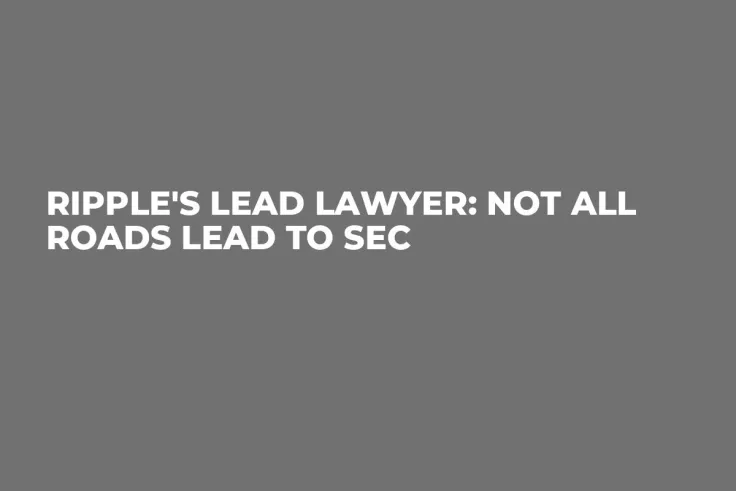In a recent educational video posted on Twitter, Stuart Alderoty, Ripple's lead counsel, sought to clarify the complicated relationships between securities, investment contracts, and digital assets.
Alderoty compared these relationships to orange groves, barrels of whiskey, and payphones, emphasizing that these items themselves are not securities.
However, when bundled into investment contracts with the promise of profitability, these seemingly mundane objects could potentially be classified as securities. This analogy was used to explain the nature of cryptocurrencies and their relationship to securities laws.
Alderoty went on to describe investment contracts as agreements where a party sells to another with the promise of financial return and the responsibility of enhancing the investment's value.
In his explanation, the Ripple lawyer indicated that an investment contract could be created from assets such as orange groves, but that this contract, accompanied by the commitment to ensure profitability, could make the contract a security. The same logic applies to digital tokens, Alderoty said, emphasizing that, by themselves, these tokens are simply commodities or virtual currencies, not "digital asset securities."
The Ripple counsel took aim at certain individuals, represented in the video by a picture of Gary Gensler, Chairman of the U.S. Securities and Exchange Commission (SEC), accusing them of deliberately sowing confusion over the status of digital tokens.
Alderoty argued that the SEC only has jurisdiction over securities, not commodities like orange groves or digital tokens, and he characterized the agency's stance as attempting to assert control over areas beyond its reach.
In his conclusion, Alderoty asserted that while consumer protection is essential, it does not necessitate the SEC's jurisdiction in every instance.
He called any claim of such jurisdiction where it doesn't exist a "political power play." With this statement, Alderoty provided a direct critique of the SEC's ongoing scrutiny of cryptocurrencies, concluding his video with the line, "Not all roads lead to the SEC." This narrative encapsulates the wider debate within the crypto industry on how, or even if, digital assets should be regulated.



 Dan Burgin
Dan Burgin Vladislav Sopov
Vladislav Sopov